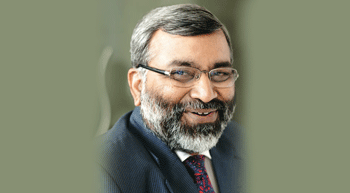Sunil Srivastava, Managing Director, BARSYL, in a candid conversation with INFRASTRUCTURE TODAY, reveals the stumbling blocks in the rail sector and offers effective solutions for the smooth execution of rail projects. Excerpts:
At present, what are the challenges involved in the railways sector?
Most of the Indian Railways projects are not large enough to attract big players. So, it is necessary to release big ticket projects in order to attract the large players. These players can bring expertise, quality, efficiency, and capability while executing large-size projects. They can deliver on time even with constraint cash because they would have enough financial strength to deliver the projects on time. If Indian Railways really wants to attract investments in the sector, there is need to think of big ticket projects worth Rs 300-500 crore. The size of projects should be attractive enough to pull in the large EPC players.
And what is your comment on the delayed projects in the railways sector? Is there a huge chunk of delayed projects that the sector is dealing with?
The Railway Minister himself has said that almost two and a half trillion rupees worth of projects are stuck. 90 per cent of the projects in the new project segment get very nominal funding. For instance, if the cost of a project is Rs 2,000 crore, the government keeps the budget of only Rs 15-20 crore. This kind of budget will only take care of staff expenditure. Such a meager budget would not recover the consulting fee, forget about the construction cost. It is important to weed out and identify the 10-15 projects to be funded for the next 10 years, rather than distributing the funds over 500 projects. Prioritisation is the key. Today if you look at the list of unfinished projects in the Indian Railways, they will be the same for the last 10 years.
So at the clearance level, are there any reasons why the railway projects tend to get delayed or stalled?
Clearance, I don´t think, is an issue. Yes, land could definitely be an issue. In some places, environment is an issue as some of them pass through forest or other tentative areas.
And also when we speak of execution at the contractor´s end- the private contractors executing the projects, are there any issues that lead to delays in the projects undertaken?
Yes, because they are small contractors and that to me is a bigger issue than land. Lot of them have quoted unreasonable prices. Now since they are not financially strong, they are unable to sustain on those prices. So at the end of the day, they tend to stop work and they rather give away whatever they have spent rather than continue work. Since inviting new bids is not viable for the railways, they go on cajoling them or giving them small sums of money to continue work. However, the contractors are hard to convince. The only solution is to create incentives for big players by looking at a combination of cost and quality. In fact, I´m aware that lot of international contractors have refused to bid even on big jobs, because their overall value or the value they are bidding is not taken into consideration and they are equated with somebody locally where they lose out because it´s purely a price game.
So can you please give any solutions for the Railway Board, the developers or contractors to ensure smooth execution of projects?
Railway Board should give very clear, precise directions to the individual zonal railway on project implementation, with responsibilities and timeframe for its execution. The directions should not be a mere policy document. The Board needs to set the deadline and timeframe for submission of even small tasks of the projects like period for inviting bids, finalisation of bids, etc. In this way, the Board can also support them in capacity building because Railway Board has a large repository but they need to share it with the people down the line.
While implementing any project, the Railway Board should consult the stakeholders, both from outside and from within the government. It can also take a cue from challenges faced during the execution of ongoing projects.
Can you please give any suggestions at the private contractors´, developers´ level?
The developer also needs to be more open and proactive, rather than keeping the problems to themselves for whatever reasons because all of them, especially the contractors have a fairly large lobby like the Builders´ Association of India or the Contractors´ Association. The problems often remain localised, and the people at the policy level are not aware of how deep the problems are. So they, especially the leading construction companies, should take that proactive step of approaching the Railway Board collectively with their problems and use that forum to even, if required, educate the Railways on how other sectors function effectively.
Please apprise us about the land issue in these railways projects?
For a railway line, you need a large track of land covering thousands of kilometre in multiple states. Now, where railways´ land is available, there is no problem. However, where you need to expand, new land has to be acquired. If you notice, majority of the land these days, aborting the railways´ land is usually farm land and that becomes an issue. The farmer does not want to give up a part of his land as the part that remains his insufficient for cultivation. So, the railways should acquire the full portion of his land. However, the railways is reluctant to do this, because it increases the cost of their acquisition. Acquiring a part of the land is not in the farmers´ interest and that becomes a major reason for the stalling of rail projects and this is a matter that requires the Railway Board´s attention.



Leave a Reply
You must be logged in to post a comment.